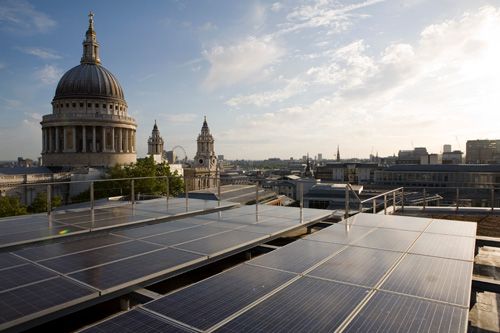

The Clean Growth Strategy, which outlines the objectives for the UK to meet its carbon targets, was launched by the government on Thursday, October 12.
The paper focuses on opportunities to deploy heat pumps, initially in the off gas grid market, which is dominated by carbon intensive fuels such as heating oil and coal that the government aims to transition away from.
The government’s commitment to phase out these high carbon heating fuels during the 2020s has been welcomed by NIBE Energy Systems.
“There has never been a better time for the UK to champion heat pumps in domestic applications and to encourage greater market penetration of such heating systems, learning from what our European counterparts have achieved,” said Phil Hurley, managing director.
“It is our aim to work with the government to encourage homeowners to replace fossil fuels with renewable heating systems, thereby unlocking the potential for homeowners to make significant contributions in reducing UK carbon emissions.
“By targeting off grid areas to remove expensive, inefficient and unsustainable oil systems, the government can make homes warmer and more comfortable while reducing our carbon footprint and reliance on polluting fuels.”
OFTEC also welcomed the government’s efforts to improve energy efficiency and reduce carbon emissions from UK homes.
Paul Rose, CEO said: “This approach is the only way real change will be achieved and is in line with OFTEC’s own vision for the future of off-grid heating.
“We believe our two-stage solution, that we published in June, is the most cost-effective way to deliver significant carbon reduction and energy efficiency gains for the UK’s 1.5 million oil heated homes. Our approach would see a boiler replacement programme in the short-term (2018-2022), followed by the introduction of a low carbon liquid fuel as a direct replacement for kerosene.
“This timescale ties in with the government’s ambition to ‘phase out the installation of high carbon fossil fuel heating in new and existing off gas grid residential buildings during the 2020s’.”
However, Clean Growth Strategy was not so well received by the Solar Trade Association (STA), who claims it offers limited early opportunities for solar power, despite its status as the UK’s most popular energy source, and as one of the cheapest, with the largest future world market.
The STA claims that while the astonishing cost reductions in solar are cited several times in the Strategy there are no explicit new measures to boost current deployment which has plummeted and which has been kept afloat by progressive planning policies by some local authorities.
It added that the central role of solar in any modern economy means that solar power is implicit in many of the policies, such as smart systems, public sector emissions reduction, and retrofitting existing properties, although there is little detail on when and how these new proposals will be implemented.
STA policy manager, Chris Hewett, said: “It does seem extraordinary that when a technology as vital to the world’s future as solar is asking, not for any new public support, but for simply a level playing field with other technologies that the government is not moving to respond. This technology will dominate global power supply in years to come so in the interests of UK plc, the government needs to stop putting the UK solar industry at a competitive disadvantage.”
“Solar empowers local people and communities, and it stimulates smart innovation more than any other energy technology. The British solar industry is being artificially held back by the government and that doesn’t help consumers, innovation or local leadership.
“We will be looking to the Autumn Statement for the measures we need urgently to level the playing field for solar power.”
